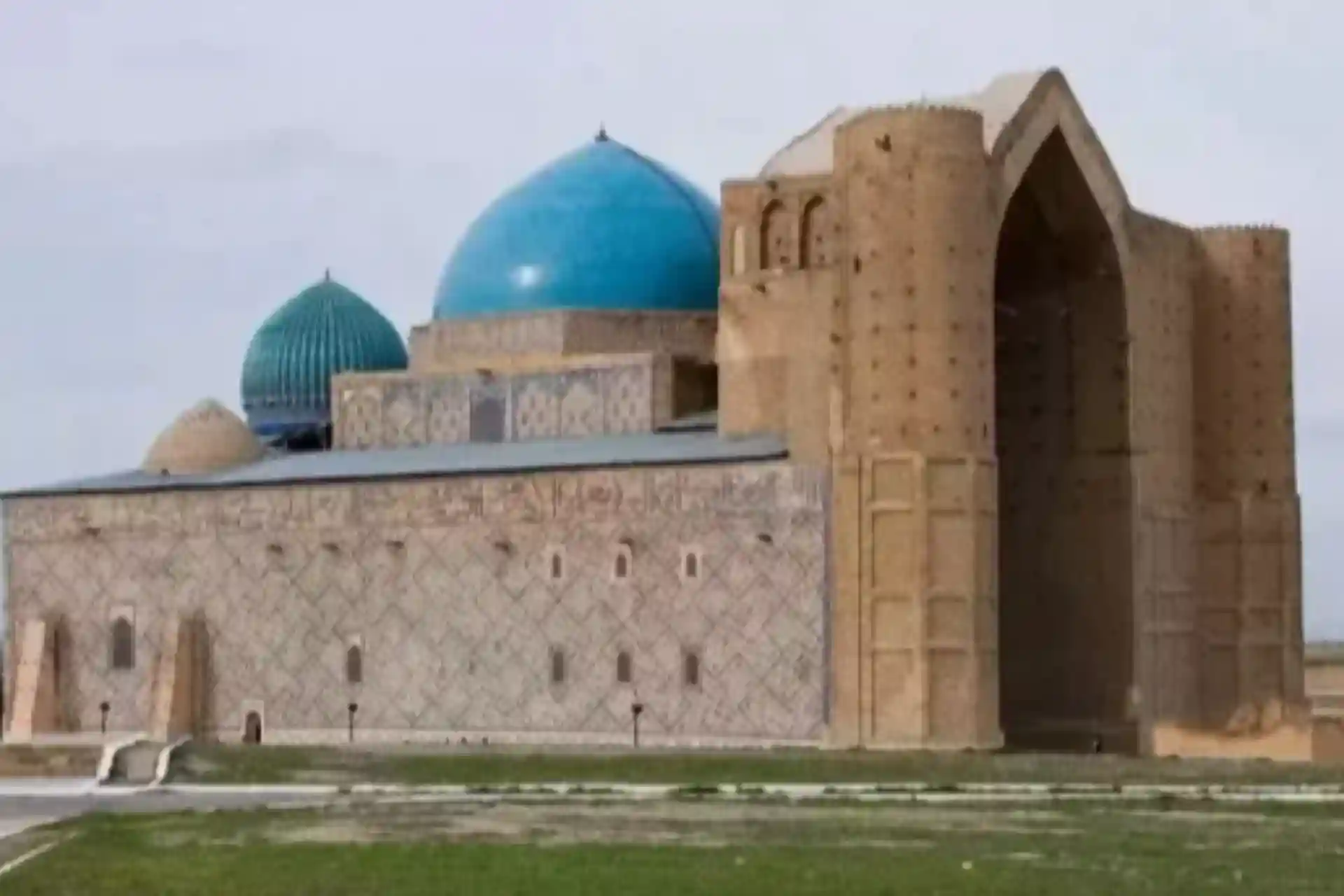27.09.2024 08:52
2048
The mausoleum of Khoja Ahmed Yassavi in Turkestan was transferred to state protection
The government of Kazakhstan has decided to transfer the mausoleum of Khoja Ahmad Yassavi, located in the Turkestan region, to state protection, reports Yeni Şafak. The decision was signed by the prime minister of Kazakhstan Oljas Bektenov.
The mausoleum of Khoja Ahmad Yassavi is a unique monument of medieval architecture, built on the grave of Yassavi, a famous Turkish poet and the founder of the Sufi order. This complex is the first site in Kazakhstan to be included in the UNESCO World Heritage List.
The complex built during the reign of Amir Temur is a vivid example of the architecture of that time and represents the importance of the spiritual and cultural traditions of Central Asia.
In 1385-1405, a complex was built around the mausoleum, including a mosque, palace halls (large and small aqsaray), library, utility rooms (kitchen, well) and living rooms (hujras) for pilgrims.
These structures play an important role in preserving the heritage of Khoja Ahmad Yassavi and make a great contribution to the cultural heritage of Kazakhstan.
The government's decision to transfer this monument to state protection is not only related to its historical importance, but also to the need to ensure the preservation of the monument for future generations. According to the document, internal affairs bodies are responsible for ensuring the safety of the mausoleum and other objects of the museum-reserve.
Also, this step is expected to open new prospects for further development of the tourism industry in Kazakhstan. Because the mausoleum of Khoja Ahmad Yassavi is one of the main spiritual and cultural centers of the country and attracts many pilgrims and tourists from Kazakhstan and abroad.
Such measures are aimed at strengthening the national cultural heritage, helping to preserve and popularize it, which is especially important in the context of globalization and the expansion of international attention to the objects protected by UNESCO.

